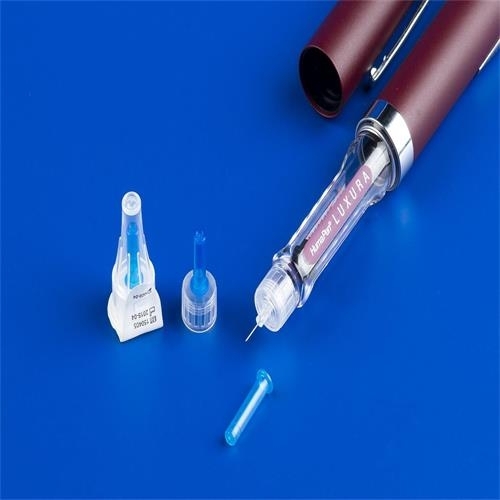Let’s talk insulin.
Mention the “I word” with a reduced carb dieter, or even a clean eater, and you will virtually discover them turn white as the blood drains from other face in abject horror.
For many years, insulin could be the big bad guy from the nutrition world.
They reference insulin as “the storage hormone” and think that anywhere of insulin in your body will immediately allow you to lay out new fat cells, gain weight, and lose any degree of leanness and definition.
Fortunately, that is not quite the truth.
The truth is, while simplifying things regarding nutrition and training are frequently beneficial, it is a gross over-simplification of the role of insulin within your body, and the simple truth is entirely different.
Not even close to being the dietary devil, insulin is actually not even attempt to be afraid of at all.
What Insulin Does
Part one from the insulin worrier’s claim (that insulin can be a storage hormone) applies – one of insulin’s main roles is usually to shuttle carbohydrate which you eat around the body, and deposit it where it’s needed.
I am not saying that every the carbs you take in are turned into fat though.
You store glycogen (carbohydrate) in your liver, good tone muscles cells plus your fat cells, and this will only get shoved into those pesky adipose sites (fat tissue) in the event the muscles and liver are full.
Additionally, unless you have a calorie surplus, you simply cannot store body fat.
View it this way –
Insulin is a lot like the employees in the warehouse.
Calories include the boxes and crates.
You can fill that warehouse fit to burst with workers (insulin) but when there are no boxes (calories) to stack, those shelves won’t get filled.
So if you feel burning 3,000 calories daily, and eating 2,500 calories (and even 2,999) your body can’t store fat. No matter if all of the calories are derived from carbs or sugar, you simply will not store them, as the body demands them for fuel.
Granted, this would not be the earth’s healthiest diet, speculate far as science is involved, it comes to calories in versus calories out, NOT insulin.
It’s not just Carbs
People fret over carbs obtaining the biggest impact on levels of insulin, and exactly how carbohydrate (particularly with the simple/ high-sugar/ high-GI variety) spikes levels of insulin, but lots of other foods raise insulin too.
Whey protein, as an example, is highly insulogenic, and may result in a spike, particularly if consumed post workout.

Dairy foods too will have a relatively large effect because of the natural sugars they contain, and in many cases fats can raise insulin levels.
Additionally, the insulin effect is drastically lowered during the day an assorted meal – i.e. one that contains carbs plus protein and/ or fat.
This slows the digestion along with the absorption of the carbs, resulting in a significantly lower insulin response. Add fibre in to the mix too, along with the raise in insulin is minimal, so regardless of whether we had been focused on it before, the solution is straightforward – eat balanced, nutrient-dense meals, and you do not need to worry.
Insulin Builds Muscle
Finding comfort the concept of insulin as a storage hormone, as well as the notion that it delivers “stuff” to cells:
Fancy having a guess at what else it delivers, beside carbohydrate?
It delivers nutrients in your muscle tissues.
Therefore, if you are forever attempting to keep levels of insulin low for concern with fat gain, it’s highly unlikely you’ll get ripped optimally. It’s that is why that I’d never put clients trying to get buff and earn lean gains with a low-carb diet.
No Insulin Can Still Equal Fat Storage
Despite all those low-carb diet practitioners again, you are able to store fat when levels of insulin are low.
Fat molecules when consumed inside a caloric surplus is in fact changed to body fat tissue a lot more readily than carbohydrates are, showing once again, extra weight or weight loss depends upon calories in versus calories out, not levels of insulin.
Why low-Carb (and Low-Insulin) Diets “Work”
Many folk will point for the scientific and anecdotal proof of low-carb diets working as reasoning in order to keep levels of insulin low.
I cannot argue – a low-carb diet, where insulin release is kept as small as possible can easily work, but this has little or no related to the hormone itself.
If you cut carbs, you normally cut calories, putting you right into a deficit.
Additionally, the person will eat more protein plus more vegetables when going low-carb, in order that they feel far fuller and consume less food. Plus, protein and fibre both have an increased thermic effect, meaning they actually use-up more calories through the digestion process.
Bottom Line: Insulin – Not too Bad All things considered
There’s no need to concern yourself with insulin in case you –
Train hard and regularly
Consume a balanced macronutrient split (i.e. ample protein and fat, and carbs to match activity levels as well as preference.)
Are relatively lean.
Eat mostly nutrient-dense foods.
Don’t have any difficulties with diabetes.
You can still store fat with low levels of insulin, and you can burn up fat and build muscle when insulin occurs.
Considering insulin in isolation as either “good” or “bad” is a real prime demonstration of missing the forest to the tress, so chill out, and let insulin do its thing while you target the big picture.
To learn more about buy semaglutide UK please visit resource: read more.
